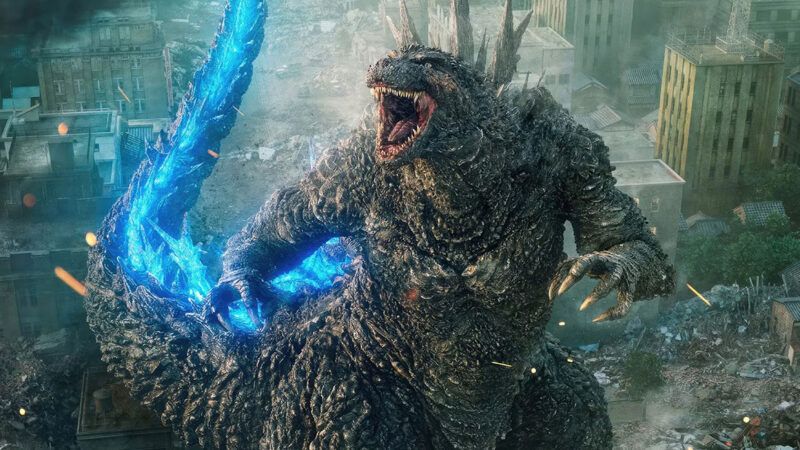Review: Godzilla Minus One Rejects the Idea of a 'Noble Death' in War
Director Takashi Yamazaki brings to the screen the most dreadful version of Godzilla since the franchise began.

The beginning of Godzilla Minus One, the latest installment in the 70-year series of kaiju flicks made by the Japanese production company Toho, upends one part of the usual formula: Tokyo is already a smoldering wasteland.
That's not because of a monstrous mutant reptile. It's from the relentless firebombings carried out by the American military near the end of World War II.
Before evolving into an anti-hero in later movies who protected Japan from other monsters (and the occasional alien invasion), the original Godzilla was a fantastical metaphor for the destruction rained down on Japan's citizens during the war: terrifying, inescapable, monstrous. Minus One plumbs those same depths, and writer/director Takashi Yamazaki brings to the screen the most dreadful version of Godzilla since the franchise began.
Caught up in the horror is fighter pilot Koichi Shikishima, who returns to the bombed-out remains of Tokyo after refusing to kill himself in a kamikaze mission. Wracked by survivors' guilt, he joins others who are rebuilding their lives brick by brick, seeking some sense of normalcy—until the inevitable arrival of Godzilla blows that away.
By its final act, Godzilla Minus One delivers something else unexpected from a monster movie: a compelling rumination about the value of a single life and the emptiness of the notion of a "noble death" in war.
The final showdown with Godzilla is led by an all-volunteer force of private citizens who have used their human capacity for reason to engineer a solution. Shikishima, once ordered by the state to throw away his life pointlessly, discovers that virtue lies not in being willing to die for an abstract cause but in choosing to live for your neighbors, friends, and community.



Show Comments (16)